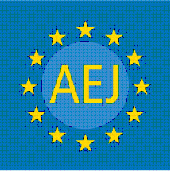The AEJ considers media freedom and independence to be fundamental principles of open societies, and that the injury and damage now being done to them require urgent action. We invite our media colleagues and the government authorities around Europe to take note of our findings, and to restore the health of media freedom as a vital element in the well-being of European societies as a whole.
The serious violations and threats to media freedom which the AEJ highlights in our latest conclusions include:
In Russia and Armenia, blatant media bias has favoured pro-government candidates in recent elections. This looks like a premeditated deception of voters and casts doubt on the validity of the results. Russia and Armenia are also among several member states of the Council of Europe where violence and intimidation against journalists are commonplace.
The Slovenian government has been accused by the country’s leading media organisations and more than 500 journalists of interfering in the editorial policies of public broadcasting and parts of the print media. The AEJ supports our Slovenian media colleagues in their request for an independent inquiry into the alleged assault on their independence. We consider the government’s refusal to enter into a proper dialogue about these complaints as a dereliction of its current role as the Presidency of the European Union. (Slovenia is not covered in the text of the AEJ Survey or the Update.)
Our reports on Croatia, Slovakia and Poland show that political forces there are seeking to manipulate the flow of news and comment on the publicly-owned media through the appointment of their supporters to top positions. Public broadcasting across Europe faces a crisis of public trust and funding, and the prospect of changing radically or being abolished in years to come.
The independence and the journalistic quality of Europe’s mainstream media are being undermined by new commercial pressures and an over-concentration of ownership. In France, media takeovers by big business interests spell the end of the long tradition of newspaper ownership by groups whose primary interest is media.

Security-related laws are being used more aggressively by European governments to block access to official information and to threaten journalists with jail or fines for defamation, revealing state secrets or refusing to disclose confidential sources. Journalists in France have called on the government to fulfil its broken promises to recognise journalists’ legal right to protect their sources.
These assaults on media freedom have important implications for the European media:
1. The AEJ finds a marked trend for national governments around Europe to use harsher methods, including heavy official “spin” and tighter controls on journalists’ access to information, to block media criticism. Journalists are coming under more pressure to censor themselves or toe a political line and not to challenge authority. The open confrontation between government and the media in Slovenia is mirrored in various ways in the UK, Ireland, Slovakia and the Czech Republic, among others.
The media freedom rights enshrined in the European Convention on Human Rights are being undermined by abuses and the indifference of governments
2. The media freedom rights enshrined in the European Convention on Human Rights, which is binding on all 47 member countries of the Council of Europe, are being undermined by abuses and the indifference of governments, and by journalists’ own neglect. Europe’s leaders and media have allowed the civil rights and media freedoms won for all Europeans at the end of the Cold War to be placed in doubt again. New forms of political and religious intolerance inside Europe and beyond its borders mean those battles must be won all over again.
3. Media “dumbing down” has weakened public support for the media and also for media freedom, and 21st century economics have made news into a cheap commodity. Journalists need to demonstrate real commitment to objectivity and fairness – the gold standard of good journalism – to earn back public trust. Media freedom is not an optional extra. Without it, governments cannot be held to account and there can be no rule of law.

Follow the comments: |
|
